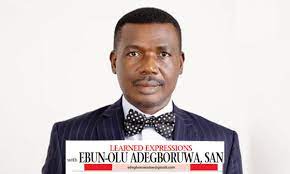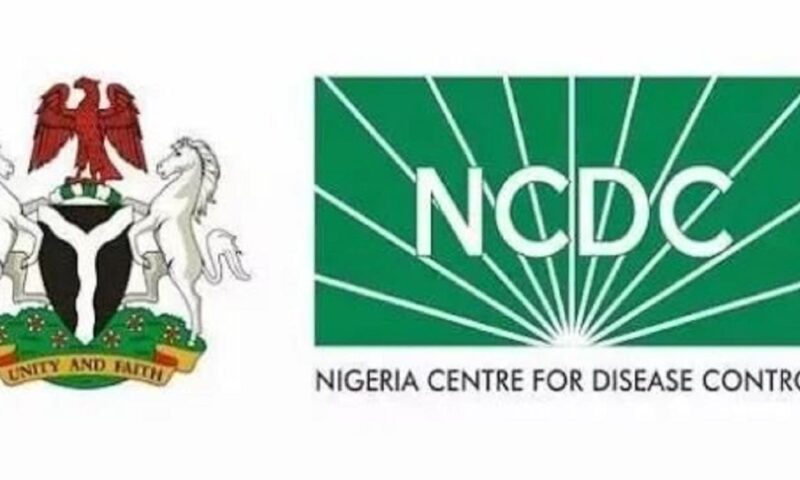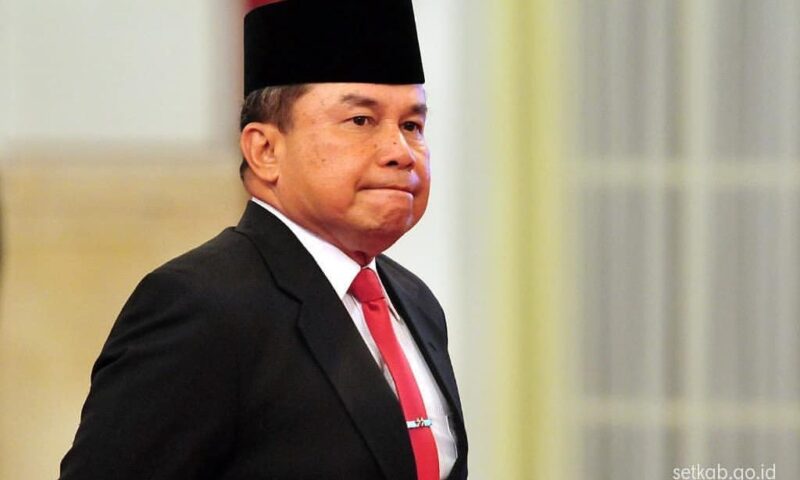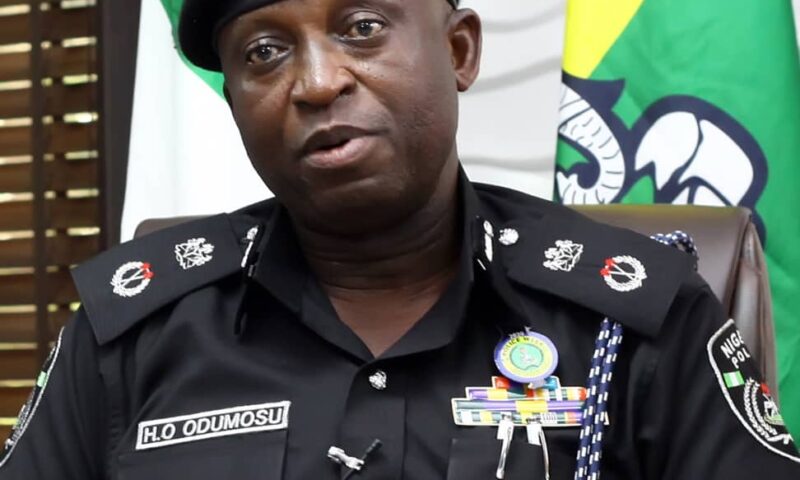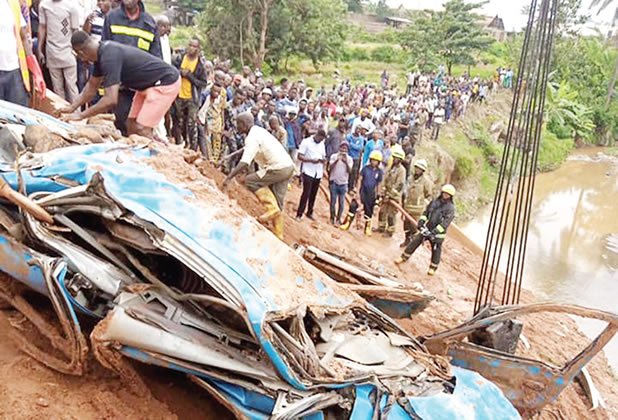Anambra And The Primaries Of Blood And Mammon
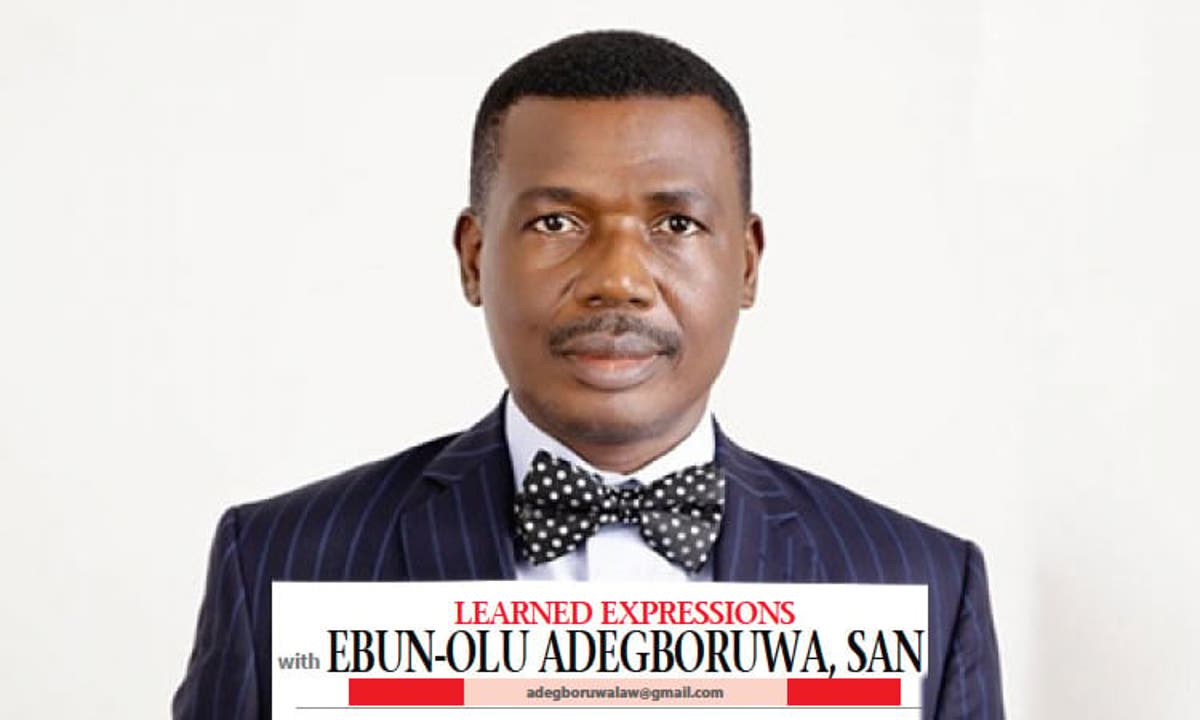
By Ebun-Olu Adegboruwa, SAN
Politicians are at their game again. All over the land, it is one political crisis or the other, arising from the primary elections to decide the candidates of the political parties. The Electoral Act requires that the Independent National Electoral Commission, INEC, should issue guidelines to political parties to determine the candidates to represent them during elections, and thereafter forward their names to INEC. For the 2021 governorship election in Anambra State, INEC had set November, 2021 for the conduct of the main election. This literally threw fire into the camps of all the political parties, and indeed exposed the hypocrisy of our democratic pretenses. It is clear beyond any shadow of doubt that Nigerian politicians are not ready for true democracy, in the proper way that the modern concept of free choice is understood and practiced. In all the locations where the sham primary elections were held, it was impunity, violence, thuggery, brigandage and total lawlessness, all over. All that the politicians wanted was just to anoint candidates and impose them on the political parties.
Before now, the courts have helped to douse the tension arising from party primary elections, by insisting that political parties be allowed some measure of discretion in determining the candidate to represent them in an election. It just accords with reason that since it is the political party as an entity that has been registered by law through INEC, then the candidate should belong to the party, at least until we get to the point of fielding independent candidates. The snag in this has always been the issue of imposition, substitution and dumping of candidates. In recent times however, the Courts have compounded the problem and helped to wreak havoc on the conduct of primary elections, with different and inconsistent orders and judgments. In June, 2020, the Honourable Chief Judge of the Federal High Court issued a circular meant to address this growing anomaly. It reads thus:
“It is common knowledge that elections will be held in some States in Nigeria in the near future. The normal Party Conventions and Primaries with attendant political maneuvering have already commenced amongst various political parties, which very often culminate in the institution of cases in the Courts.
In this regard, Your Lordships are strongly advised not to grant any Ex-parte injunctive orders in any political matter brought before Your Lordships. Furthermore, Your Lordships are equally advised not to entertain matters of which the cause of action has arisen from outside your Judicial Divisions.”
Notwithstanding this clear directive, a Federal High Court sitting in far-away Jigawa State in the North was still able to entertain a case relating to the primary election in Anambra State, issuing orders in respect of a subject matter outside its jurisdiction. Other cases on the Anambra Governorship primary were also filed in Imo State. When these cases eventually got to the Court of Appeal, the higher court upbraided the two High Court judges in Jigawa and Imo States respectively and even the senior lawyers that filed the cases on behalf of their clients, recommending disciplinary actions by their supervising organs. Nothing has happened or will likely happen.
Generally, political parties in Nigeria seem to have a problem with any arrangement that would tie their hands to any particular candidate, for any election. If you ask them to conduct election to determine their candidate through secret ballot, the winner thereof may not resonate with the expectation of the party leadership; if you ask them to choose their candidates through indirect primary, the likelihood of subsequent substitutions will become endless, as even on the eve of an election, politicians still want to change the rules.
The import of the disorderliness, arbitrariness and manipulations of the party primaries to our national development is in relation to good governance. If the candidate is not the true choice of the people through any form of free and fair election, then there is no social contract that can generate any form of allegiance, from the said candidate, to drive performance, if and when he gets to power. The contractual obligations between the leader and the led is the process of free choice, whereby in canvassing for the votes of the led, the leader is tied to certain programmes of action to be executed upon his election, in exchange for the votes of the led. Once this bond is missing, then there is no basis for the led to expect any measure of performance from the leader, the latter who will only show allegiance to his source of power, either derived from the party leadership, from godfathers, from rigging or manipulation or from financial inducement.
Democracy is a game of choice, whereby the people as a block, form the basis and nucleus of governance. To say that power belongs to the people means that they ultimately decide who should exercise power on their behalf. This right of choice in the people also postulates that if and when there is a disconnect between the people and the leader, for reasons of lack of performance or abuse of power, they should be able to exercise their power to replace such a leader. The Nigerian case has been an exception to all democratic conducts, especially in the choice of the leader, wherein the people now seem to have no say at all.
Given the orgy of violence that characterized the party primaries across party lines, I believe that the time has come now for all stakeholders in the insurance sector to develop a new life insurance policy package, that will henceforth secure the lives of all those participating in primary elections, as it is clear beyond any shadow of doubt whatsoever, that the party leaders do not desire to get the people involved in the choice of candidates.
The other dangerous implication of the combustive party primary elections is the fate of the 2021 governorship election, the outcome of which we can very well now begin to predict, going by our experiences so far, from the primary elections. If a leader has succeeded in manipulating the outcome of a primary election to be able to foist his candidate upon the party, willy nilly, such leader, being well aware of the likelihood of a revolt from the people, would do everything possible to manipulate the general election, in order not to be disgraced ultimately. This is one of the forces behind vote manipulations, ballot snatching, alteration of election results and outright rigging of elections. This is because if the election proper is free and fair and is based purely on the choice of the people, then all the impunity of the primary elections, would be squarely dealt with by the people, at the general election.
If what we have witnessed so far in the primary elections of the political parties is anything to go by, we can as well begin to prepare for the explosion to come, in November. These party hawks and godfathers, these party cabals and political dealers, would do all in their powers to retain the status quo and return their preferred candidates in the general election. This is why it has become necessary for the legislators to think up a workable procedure for the conduct of party primary elections, in such a way as to guarantee the involvement of party members in the choice of candidates, through the secret ballot system. In our present situation and experience, asking party members to openly queue up behind a candidate not supported or endorsed by the godfather is like throwing the child to the lion to devour. People should be allowed to vote according to their conscience and conviction, not out of fear or intimidation or persecution, as in that wise, the freedom of choice has been hindered, meaning that the true candidate may not emerge, afterall.
These Primaries of Blood and Mammon put intense pressure upon the judiciary, especially the courts, which have been faced with the appropriate method of dealing with the impunity of party leaders in regard to the electoral process, over the years. The legislators have however so often tinkered with the electoral act, to protect the candidates from undue substitution, leading to the famous decision in the Rotimi Amaechi v. Celestine Omehia case. The problem then is that no matter what the courts do, politicians would always want to manipulate the system and have their way, all the time. Since legal principles are based upon facts and the legislations, it would seem that we are yet very far from an enduring solution, except politicians accept to play by the rules. And since politicians have failed to put their leaking houses in good order, and INEC itself has failed woefully to enforce its own guidelines for the conduct of primary elections, the courts should in appropriate cases assert their powers, by overturning all proven acts of impunity and brigandage and help rid our nation of Primaries of Blood and Mammon.
I say in appropriate cases because we cannot and should not tolerate the very ugly situation whereby the Courts would be seen as endangering democracy with flippant orders and counter-orders, especially if that would help to truncate the free choice of the people. It is said jokingly without proof, that in some States, politicians have prototype orders of injunction, already signed, which politicians keep in their portfolios, waiting for the right occasion and all that is needed is to insert the names of the parties. Even though there is no proof of this, the fact that people have the view that it may at all happen, is worrisome. The judiciary cannot turn itself into a trap for democracy or else we are all doomed. That said, the National Judicial Council and the Nigerian Bar Association should take up the cases of those involved in any malpractice, as recommended by the Court of Appeal, so that impunity is not given the chance to reign in our body polity.


